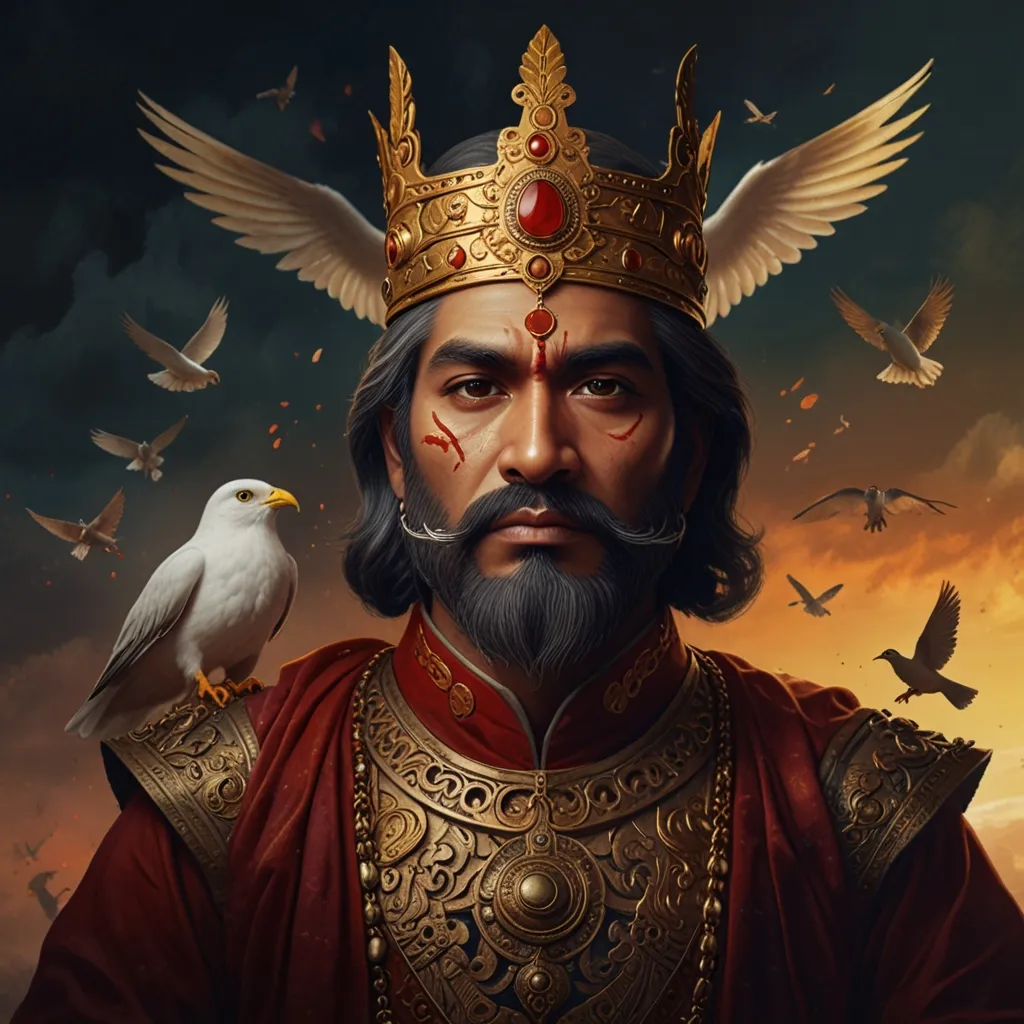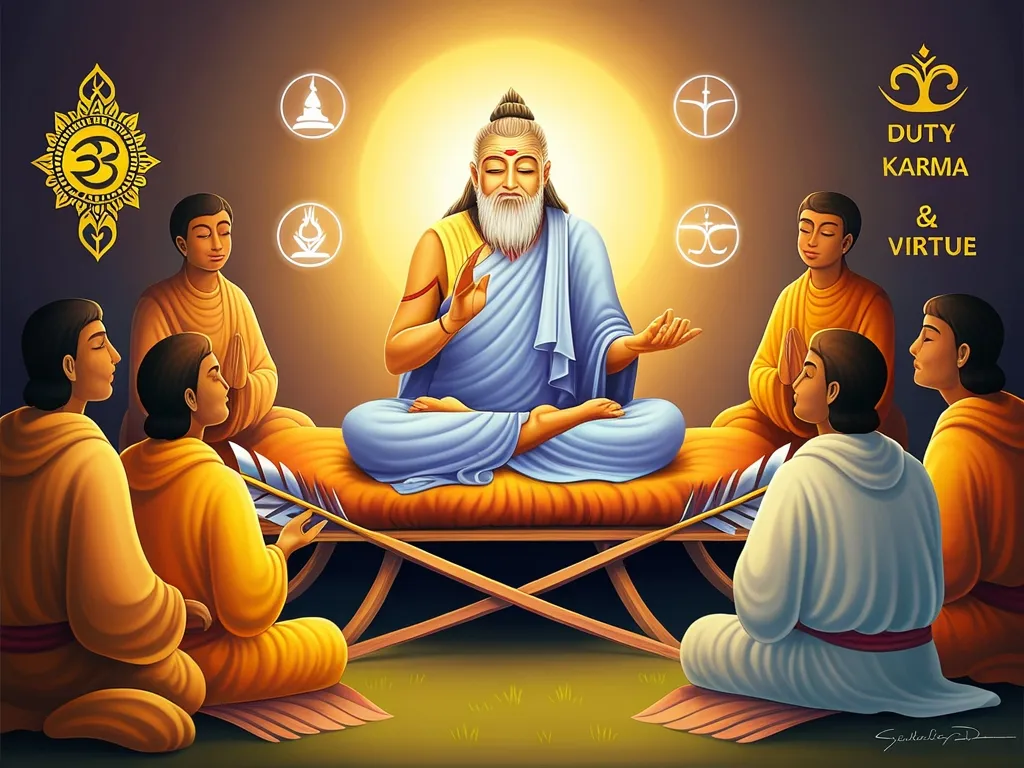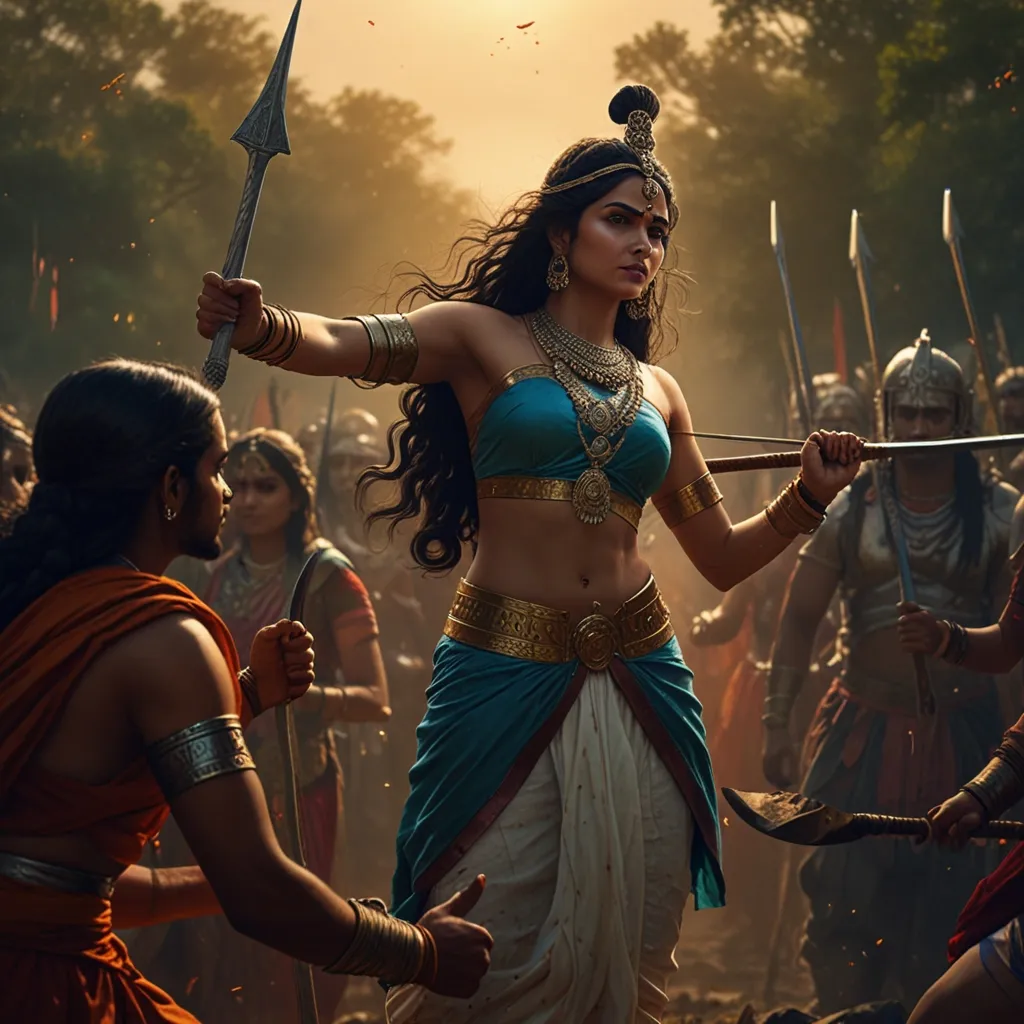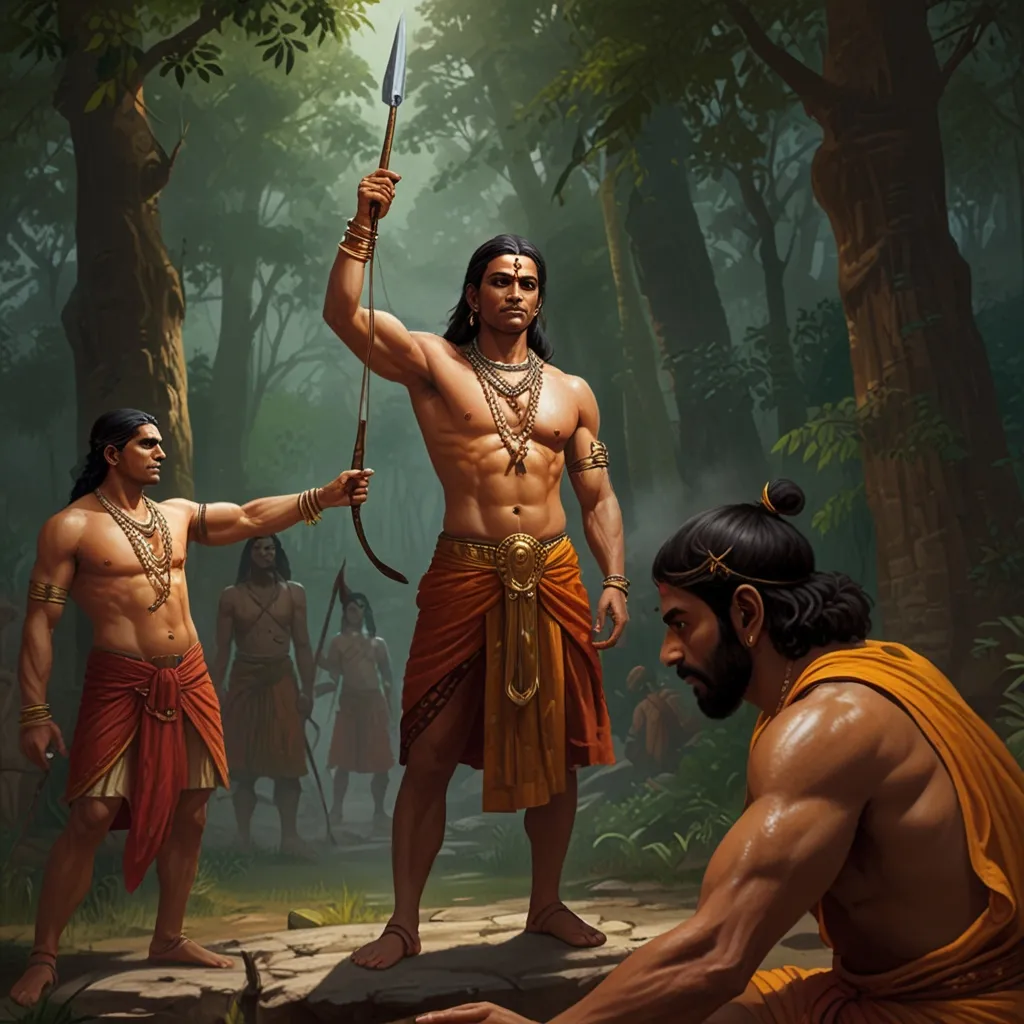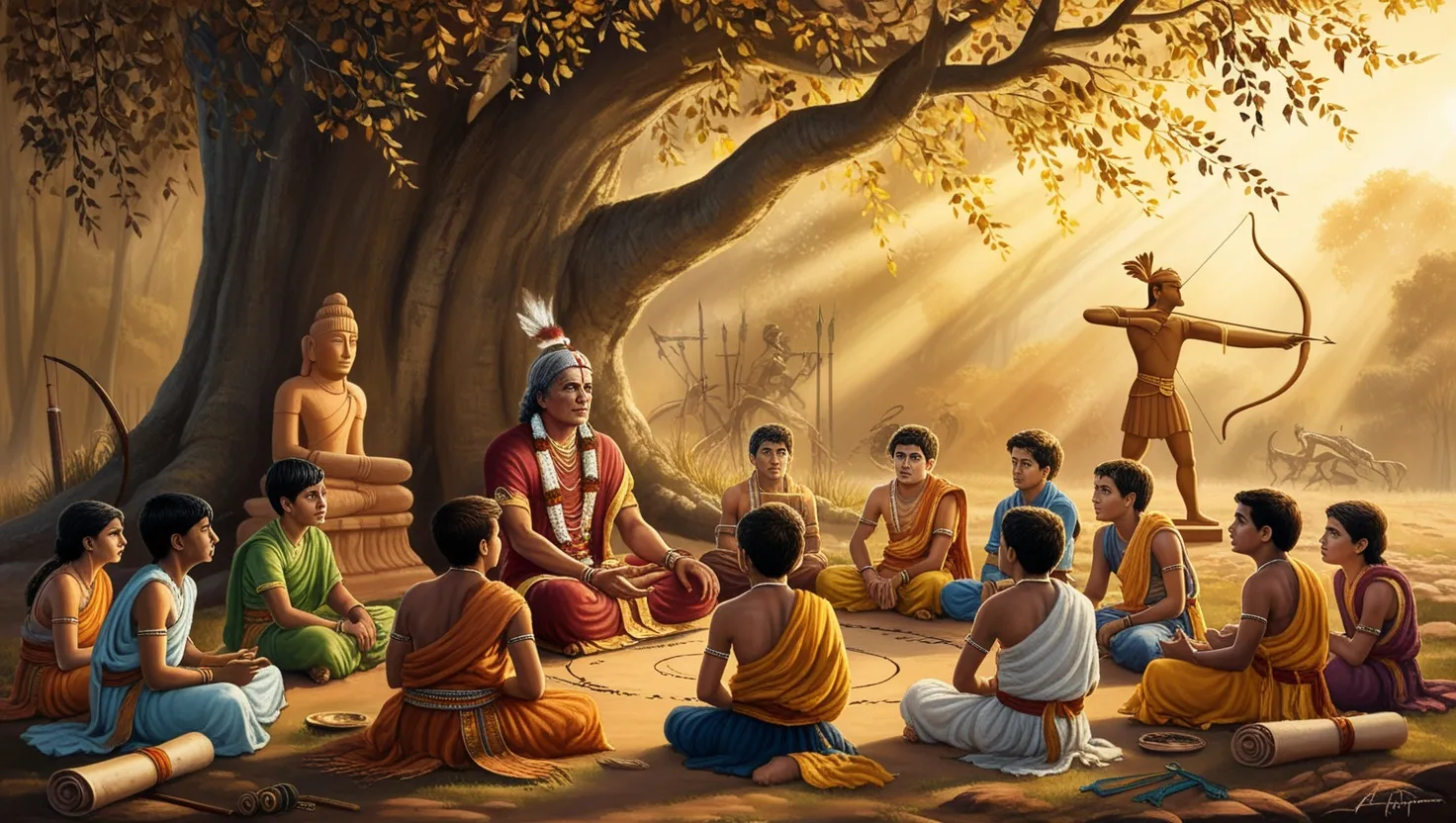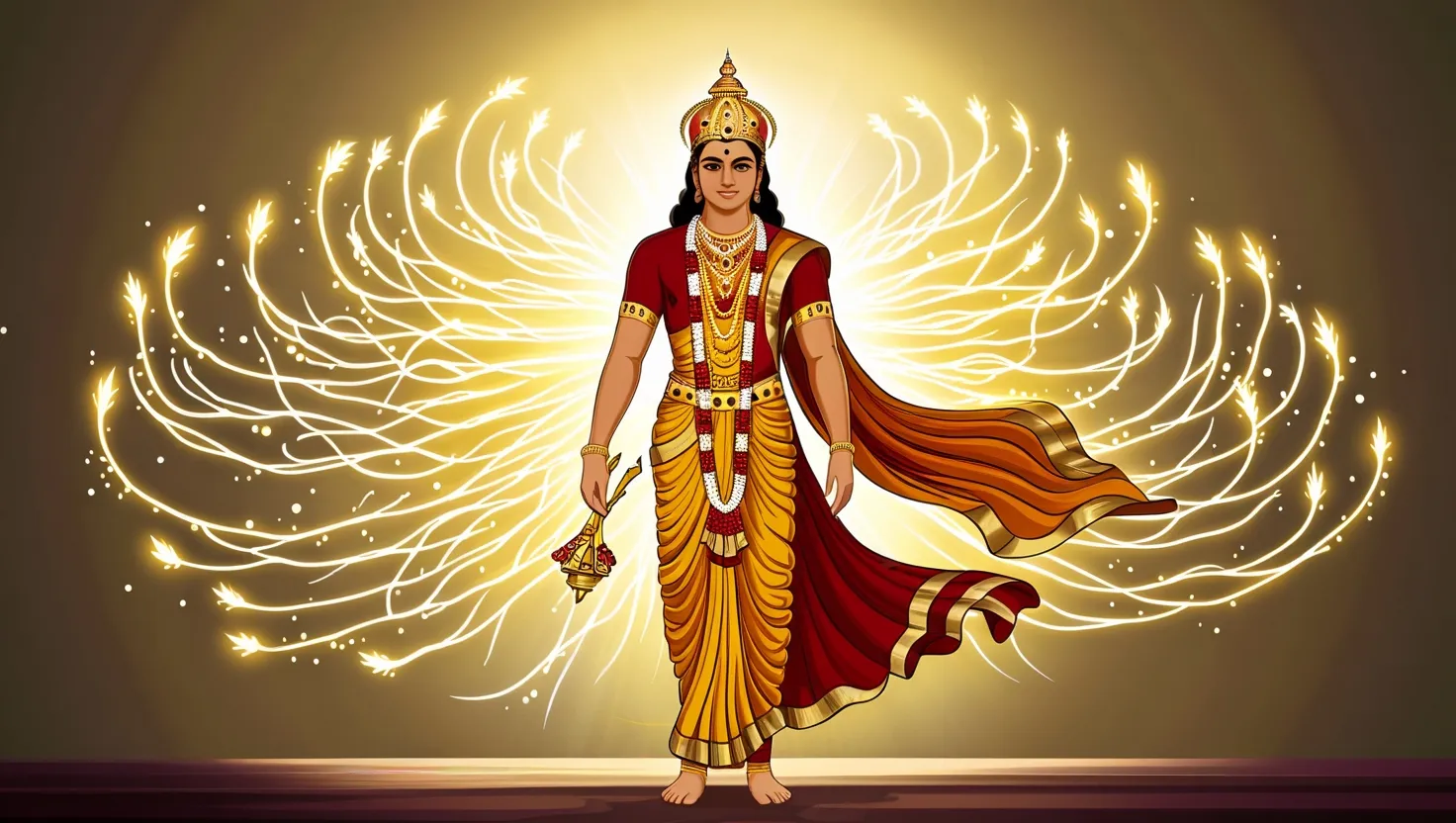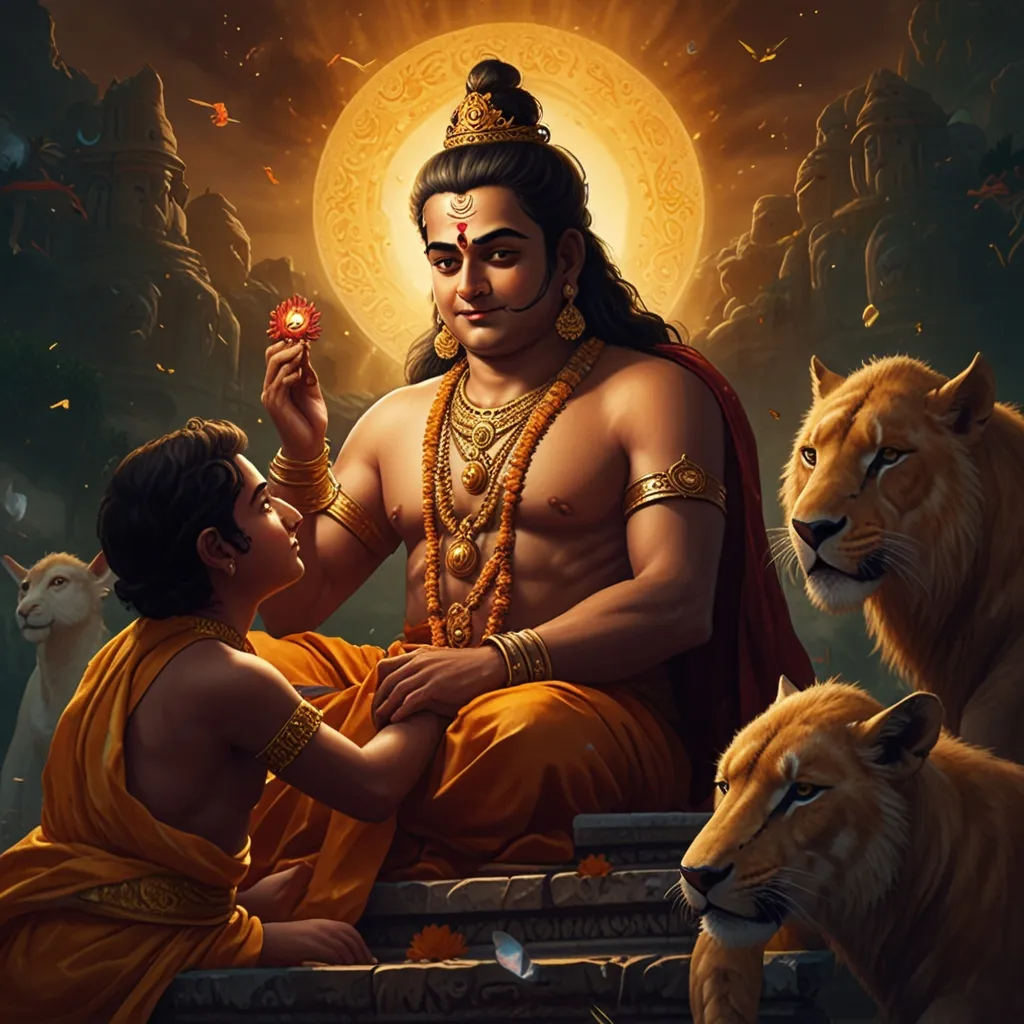In the rich tapestry of the Mahabharata, a tale of compassion and selflessness shines brightly through the story of King Ushinara. This ancient narrative, handed down from generation to generation, highlights the essence of sacrifice and virtue in human life. King Ushinara’s legend serves as a beacon of inspiration, firmly rooting the lessons of benevolence and justice in our collective consciousness.
King Ushinara was revered far and wide for his just and liberal nature. His kingdom thrived under his rule, a harmonious haven where peace and prosperity were the norms. The king’s reputation for fairness and generosity eventually piqued the interest of Indra, the King of Gods, who decided to test Ushinara’s legendary liberality. Along with Agni, the fire god, Indra descended to the earthly realm, disguising themselves as a hawk and a dove, respectively. The stage was set for an extraordinary trial.
The hawk, symbolizing Indra, relentlessly pursued the dove, representing Agni, until the terrified bird sought refuge in King Ushinara’s lap. Shivering and scared, the dove implored the king for protection against the fierce predator. Without a moment’s hesitation, Ushinara vowed to shield the dove, honoring the sacred promise he had made. However, the hawk presented a compelling argument, claiming its rightful prey according to the laws of nature. The king, unwavering in his pledge, offered the hawk an alternative: any other flesh it desired.
Yet the hawk was determined and set its sights on the most extraordinary offering—the king’s own flesh. Displaying an unparalleled level of selflessness, King Ushinara agreed to the hawk’s demand, cutting off parts of his own flesh to balance against the dove. Despite giving more and more of himself, the scales remained unbalanced. His family and courtiers were plunged into despair, but Ushinara never wavered. In a final act of astonishing commitment, King Ushinara stepped onto the balance himself.
It was then that the hawk and dove revealed their true identities—Indra and Agni. Deeply moved by Ushinara’s courage and selflessness, the gods restored him to his original state and blessed him profusely. They praised his unwavering nobility and assured that his glory would be immortalized through the ages.
The lessons embedded in King Ushinara’s story are profound. Compassion, self-giving, and justice are at the heart of this tale from the Mahabharata. It underscores that true leadership and heroism are not defined by power or wealth but by the willingness to make the ultimate sacrifices for the welfare of others. Ushinara’s narrative serves as an eternal reminder that greatness stems from our capacity to act selflessly and with compassion.
The tale of King Ushinara is more than a story; it’s a cultural blueprint, a means of preserving moral values through generations. Stories like this are potent tools that not only entertain but also encode complex cultural information. They offer rich lessons on living a virtuous life and help foster values like generosity and cooperation within communities.
Consider the Agta hunter-gatherers in the Philippines, who use storytelling to impart essential cultural values such as egalitarianism and resource-sharing. Similarly, the story of King Ushinara emphasizes the importance of protecting the weak and upholding justice. It teaches us that true leadership involves making tough choices and difficult sacrifices for the greater good. Retold and celebrated in myriad formats, this tale constantly nudges us to emulate Ushinara’s virtues in our lives.
The story of King Ushinara also dovetails beautifully with the universal themes of heroism and transformation. Joseph Campbell’s insights into hero stories resonate here, illustrating the pivotal dilemmas we face and the transformations we undergo. King Ushinara’s journey from a revered monarch to an emblem of ultimate sacrifice and compassion fits perfectly into this heroic narrative.
In today’s world, the timeless power of such stories echoes through the works of artists and writers. For example, George Lucas drew inspiration from Campbell’s theories while creating narratives that encapsulate modern challenges. These tales fulfill the essential functions of religion outlined by Campbell: they guide us on how to live well, foster social harmony, deepen our understanding of the universe, and fill us with hope and awe.
The story of King Ushinara stands as a robust testament to the enduring impact of storytelling. It’s not just a tale of ancient times but a vivid reminder that our actions have far-reaching consequences. True greatness, as Ushinara demonstrated, is achieved through acts of selflessness and compassion. This age-old narrative continues to inspire individuals worldwide, imparting invaluable lessons on leadership, justice, and the protection of the vulnerable.
Through King Ushinara’s story, we grasp that real heroism is often quiet and enduring. It’s about standing by one’s principles, even when the cost is great. This story doesn’t just tell us what happened in ancient times; it invites us to think deeply about our values today. In a world often cluttered with the noise of self-interest, King Ushinara’s tale whispers to us the profound truth of living a life rooted in compassion and justice.
As you let this story fill the corners of your mind, may it inspire actions that echo with the same nobility and courage showcased by King Ushinara. His legacy isn’t just etched in the sands of time; it’s alive in every selfless act and courageous decision inspired by his tale. And in this way, the glory of King Ushinara indeed endures forever.
